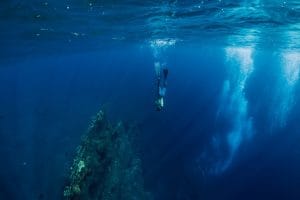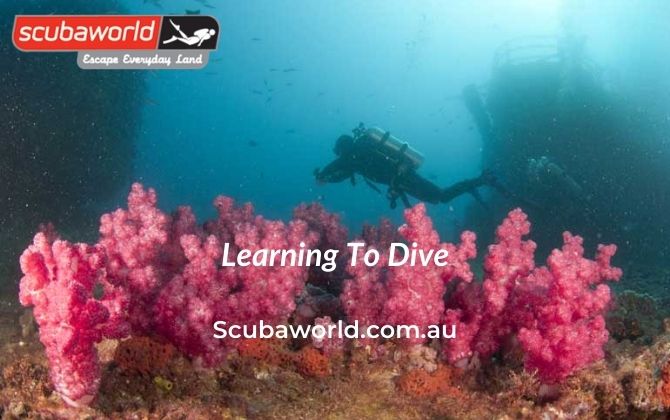
Why Scuba Divers Should Try Freediving: A Personal Perspective from an Scuba diving and Freediving Instructor
Hey everyone, I’m Matt, co-director of OceanSense Freediving here on the Sunny Coast. Over the

So, you are interested in joining the fantastic world of divers? Great decision. But that is only the first part – deciding to. The real fun begins from here.
Open water diving will open your eyes, mind, and body to the incredible world of underwater life and beauty. And although the activity may look effortless (or complicated, depending on how you see it) on television, learning to dive takes a lot of commitment and hard work, which go way beyond mere passion.
But before you take the next step in your dream of becoming a diver, there are a few things you need to learn. And that is the reason for this article.
First of all, you must be of the right age to be able to learn scuba diving. This is usually about ten years old. In addition to that, you must be cleared by a qualified medical expert to declare you physically fit to take on diving lessons. Once cleared, you need to take time to learn the fundamentals of diving. At this stage, it is important to join a club or diving centre if you do not have any qualified trainer.
Fortunately, there are several diving schools and clubs ready to take you in at the beginner level. Your diving school should make your learning experience simple and comfortable while creating a safe environment for enthusiastic learners to enjoy a personal experience. Whether you are planning to take up diving as a lifelong sport or as a hobby, your ‘diving school’ should offer you different prices for different learning packages. It is very important to note that it is dangerous to try learning diving on your own.
It is almost impossible to attempt scuba diving without the right tools or equipment. In fact, no instructor will allow it, as such equipment will not only make it easier to adapt to your time underwater but will also keep you protected. Most ‘diving schools’ offer newbies the basic equipment that has been carefully selected based on quality. It is best to choose a diving school that offers the essential equipment or tools tied to the cost of their lessons. This will take away the burden of needing to purchase your gear by yourself.
During the beginning stages of your water diving lessons, your lessons will be held in a much more controlled or confined water body such as a tranquil lagoon or a pool. You will be taken through the basic diving techniques such as descending, ascending, and clearing water from your mask. First, your diving instructor will take time to demonstrate and review the basic techniques to you until you are comfortable enough to try them. Once you become comfortable, your instructor will guide you through them. You will continue in this manner until you become good enough to attempt the moves on your own – of course, under the watchful eye of your instructor. Once you are ready, you will start learning open water diving.
Once you are able to master the confined water dives techniques, you will move on to the open water dives. Here, you will be taught how to dive by diving to a maximum of about 50 feet or 18 meters. The skills that you can master in the confined water diving lessons will be used here to enable you to explore the underworld, with your instructor constantly by your side. At this stage, you will be moved to a larger water body such as the ocean, or a lake nearby.
After completing all the diving techniques at this stage as well as every other diving course requirement, you will become a certified diver. Depending on the structure of your diving course and how often you practice, you can complete this stage within a couple of days or a week.
It is quite paradoxical that being in a body of water for an extended period will cause your skin to dehydrate. But that is what will happen. Thus it is essential to keep your body hydrated, especially if you’re going to be taking your diving lessons in a hot and humid place. Also, the air you will breathe in during your diving lessons will likely be arid. This will also harm your body’s hydration. Always make sure you drink about three litres of water every day. And in case you are wondering, soda does not count as hydration.

Hey everyone, I’m Matt, co-director of OceanSense Freediving here on the Sunny Coast. Over the
Join us Thursday 30th Jan at 5:30pm to hear David Mullins talk about nudibranch defences
Dear members, I would like to take this opportunity to inform you about a few